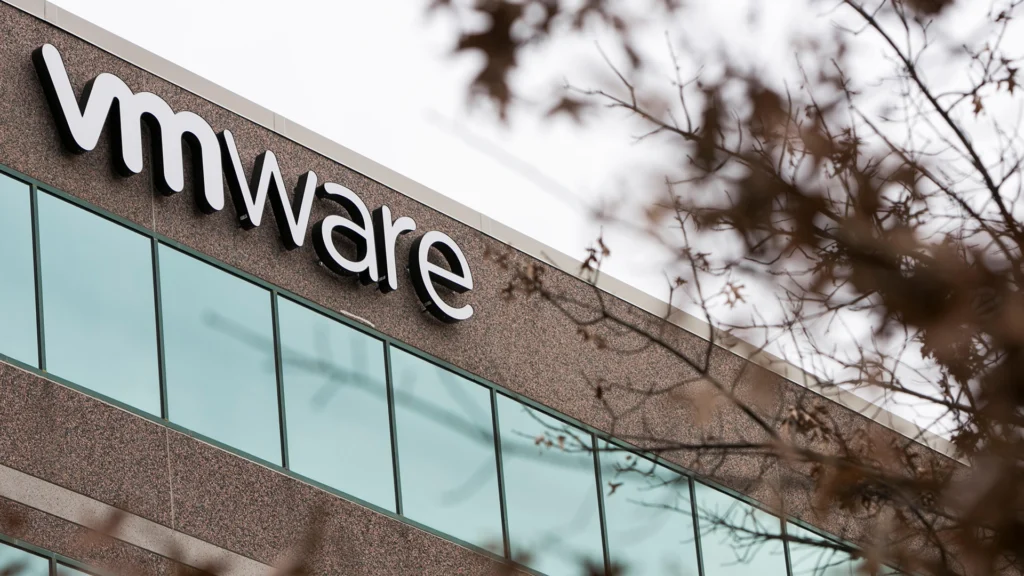Introduction
VMware is a leading platform that optimizes computing infrastructure through advanced virtualization technologies. However, ensuring the security of VMware environments is of paramount importance. Without proper security measures, sensitive data can be compromised, legal compliance can be jeopardized, and the reputation of an organization can be severely damaged. This article explores essential security tips related to VMware and highlights their importance in safeguarding virtualized environments. For more detailed information, you can visit the article What Are the Security Tips for VMware?.

Why Is VMware Security Important?
It’s important to follow security tips for VMware because:
Data Security: Securing VMware environments ensures the protection of sensitive data. Whether dealing with customer information, financial records, or intellectual property, safeguarding data is essential to prevent unauthorized access and potential breaches. Implementing robust security measures within VMware ensures that data remains protected, both in transit and at rest.
Compliance: Many industries are subject to stringent legal requirements regarding data protection and privacy. Compliance with regulations such as GDPR, HIPAA, or PCI-DSS is mandatory, and failure to adhere to these standards can result in severe penalties. Ensuring that your VMware environment is secure and compliant with these regulations is vital for avoiding legal repercussions.
Corporate Reputation: Security breaches can have a devastating impact on a company’s reputation. Customers and partners expect that their data will be handled with the utmost care, and any failure in this regard can lead to loss of trust, customer attrition, and financial losses. By prioritizing VMware security, organizations can protect their reputation and maintain the trust of their stakeholders.

How to Implement VMware Security Tips?
Implementing security tips in VMware is a straightforward process that requires attention to detail and adherence to best practices. Below are some essential steps to enhance the security of your VMware environment:
- Security Training: Educating your team about security protocols and practices is the first step towards creating a secure VMware environment. Employees should be aware of the latest threats and how to respond to them. Regular training sessions can help maintain a high level of security awareness and ensure that everyone in the organization understands the importance of protecting sensitive data.
- Firewall and Anti-Virus Software: Deploying firewalls and antivirus software is a fundamental security measure. These tools help prevent unauthorized access to your VMware environment and protect against malware and other cyber threats. It’s important to ensure that these systems are kept up to date with the latest security patches and definitions to remain effective against new and evolving threats.
- Patch Management: Keeping your VMware software and virtual machines up to date is crucial for security. VMware regularly releases updates and patches that address vulnerabilities and improve overall security. Ensure that these updates are applied promptly to reduce the risk of exploitation by cyber attackers.
- Network Segmentation: Implementing network segmentation within your VMware environment can further enhance security. By dividing your network into smaller, isolated segments, you can limit the potential damage in the event of a breach. This approach also makes it more difficult for attackers to move laterally within your network.
- Access Control: Implementing strict access control measures is essential for protecting your VMware environment. Ensure that only authorized personnel have access to sensitive data and critical systems. Utilize role-based access controls (RBAC) to assign permissions based on the user’s role within the organization, thereby reducing the risk of insider threats.
The Importance of Implementing VMware Security Tips
Following VMware security tips offers several key benefits that are essential for maintaining a secure and efficient IT environment. These benefits include:
Data Protection: Implementing the right security measures ensures that sensitive data is protected from unauthorized access and breaches. This not only safeguards your company’s assets but also builds trust with your customers and partners.
Risk Mitigation: Security measures help reduce the risk of security vulnerabilities and protect against potential threats. By proactively addressing security concerns, you can prevent costly incidents and ensure the continuity of your operations.
Corporate Reliability: Avoiding security breaches enhances your organization’s reliability and fosters customer trust. A strong security posture demonstrates to your stakeholders that you take data protection seriously and are committed to maintaining a secure environment.
Conclusion
Ensuring the security of VMware environments is crucial for protecting sensitive data, maintaining legal compliance, and preserving corporate reputation. By following the right security tips and best practices, organizations can significantly reduce risks, protect their assets, and enhance their overall reliability. For more detailed information on VMware security tips, you can visit the article What Are the Security Tips for VMware?.




